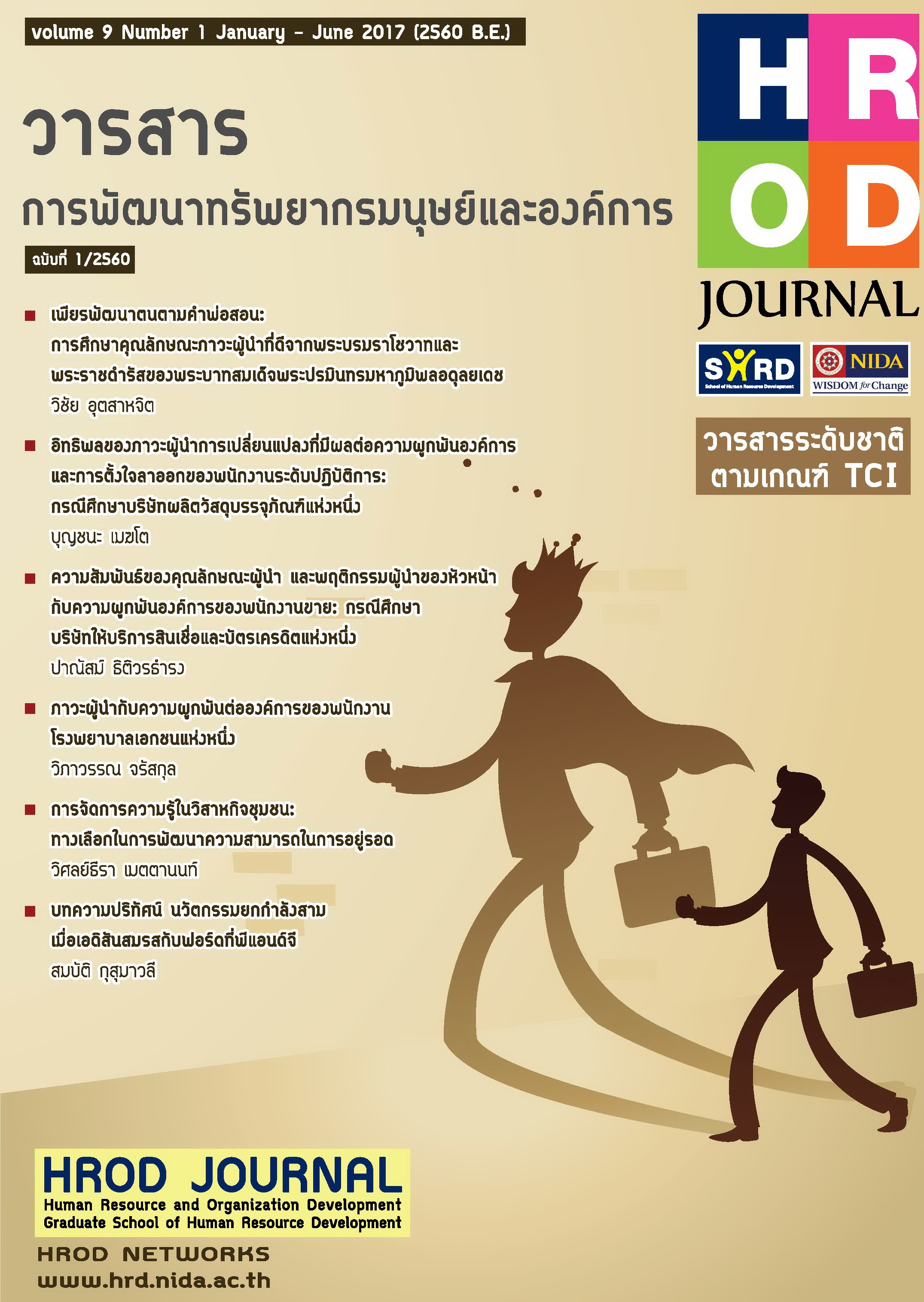Relationship between trait and behavioral leaderships and Organizational commitment of the sales staffs: A case study of a big company as the Finance service business (Loan and Credit Card) located.
Main Article Content
Abstract
The purpose of this study was to investigate the relationship between trait and behavioral leadership and organization commitment of the sales staffs. Population group of this research consisted of 159 employees of Telesales at a big company as the Finance service business (Loan and Credit Card) located in Bangkok. This study is quantitative research and four questionnaires were utilized to collect data of this study, namely demographic questionnaire, traits leadership questionnaire, behavioral leadership questionnaire, and organizational commitment questionnaire.
Result revealed that:
1) Trait leadership correlated to organizational commitment, in general and for each aspect i.e. affective, continuance and normative commitment of organizational commitment significantly. Additionally, all of trait leadership perceptions i.e. conscientiousness, surgency, openness to experience, adjustment and agreeableness showed that each factor correlated to organizational commitment, in general and of each aspect i.e. affective, continuance and normative commitment of organizational commitment significantly.
2) Behavioral leadership correlated to organizational commitment, in general and for each aspect i.e. affective, continuance and normative commitment of organizational commitment significantly. Additionally, behavioral leadership perceptions i.e. participative, achievement-oriented and supportive leadership showed that each factor correlated to organizational commitment, in general and of each aspect i.e. affective, continuance and normative commitment of organizational commitment significantly except for the directive leadership was not correlated to organizational commitment.
From the results of this research, it could be suggested that organize the training and development programs for leadership in the creation of good behavior. By educating, exchange the experiences or practicing through learning simulation. Especially, the development of participative leadership’s behaviors will be increased through coaching and importantly work closely with subordinates. The recommendations for the further study should be interested in the others job fields or increased the population and the next study would like to know the deeply considerations by the mix method research.
Article Details
1) The content of article in HROD journal is the author’s wholly responsibility to research, analyze, summarize, compile, and reference data. The editorial department will not be responsible in anyway.
2) The submitted articles in HROD journal must be unpublished before and must not be currently under consideration for publication elsewhere. If it is detected for its repetition, the author must be responsible for infringement of copyright.
3) Authors will be asked to transfer copyright of the article to the Publisher. The article is prohibited to reproduce all or part of the text, unless allowed.


